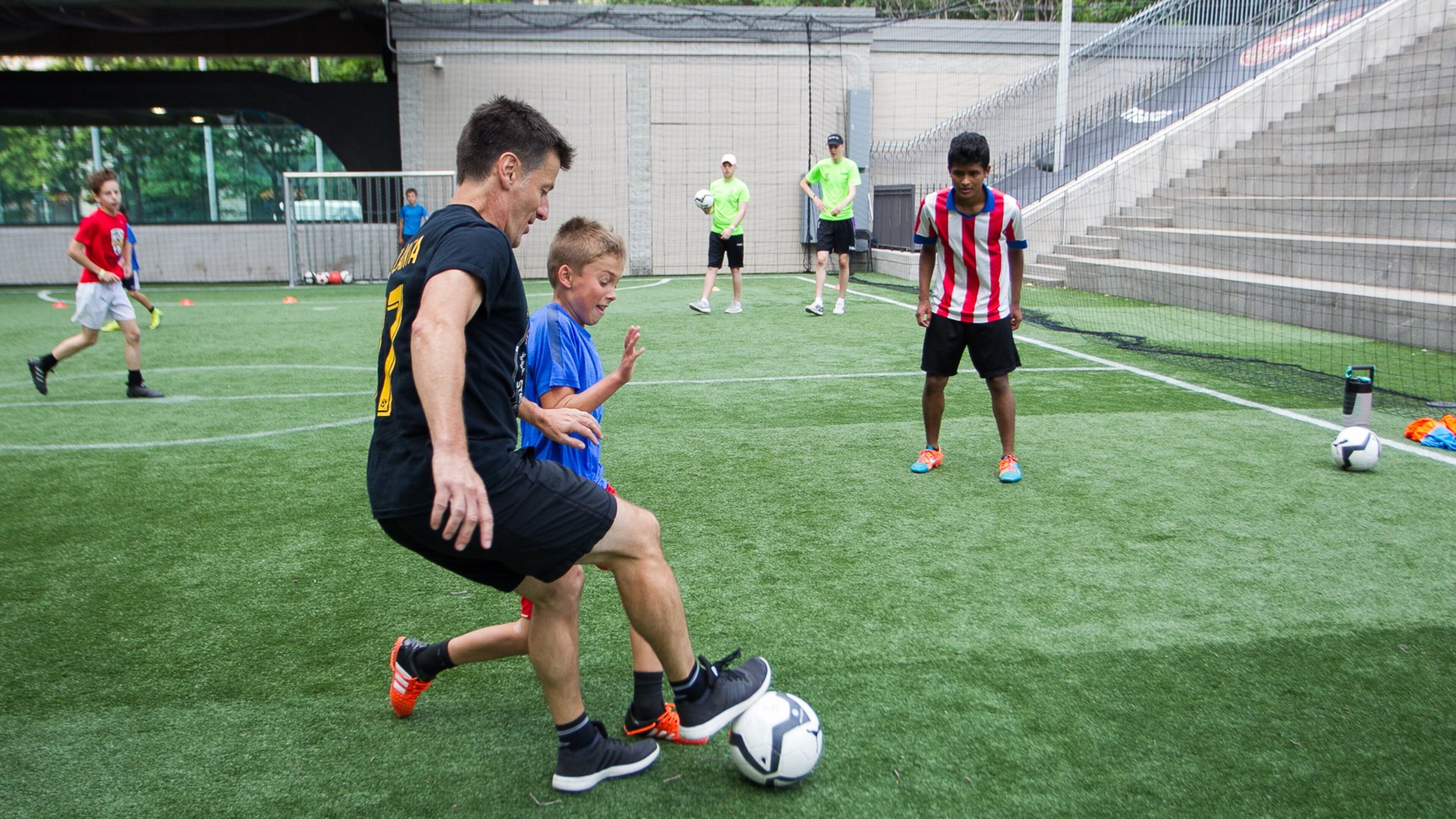Sunday Conversation with Phil Hill

Phil Hill grew up in Southampton, an hour south of London, playing pickup soccer in the street every evening with dozens of other kids. “The beauty of the game is that it is a leveler, a great way to integrate across racial and economic bounds,” he says. Today, Hill is executive director of Soccer in the Streets, which is leveling the playing field for kids from neighborhoods where soccer has been out of bounds for cultural or financial reasons. But the Atlanta nonprofit is not really about soccer, Hill says. “At the end of the day, it is about opening up the door for life opportunities for our kids and showing them a new way to express themselves and meet people and grow.” For more information, visit www.soccerstreets.org.
Q: How did you end up in Atlanta?
A: I worked for Coca-Cola in London straight out of school and just got itchy feet to experience new things. I backpacked around the world and wherever I went, whether Thailand or Egypt or Malaysia, I looked for a soccer game. The sport became my universal language. I ended up here 23 years ago. You just can't plan these things.
Q: Why has soccer caught on?
A: At its essence, all you need is a ball. Across the world, soccer is a working class sport but here it's a high priced middle-to-upper class sport. I just wrote a check for $1,800 for my 9-year-old to play on an academy team. A kid from Vine City or Clarkston is never going to be able to afford that. A lot has changed over the last few years. A new club like Atlanta United really helps, even if FIFA on Xbox has played its part. Inner city neighborhoods now want in on the sport and it's our challenge to find a way to make soccer work for everyone.
Q: How did you get involved with Soccer in the Streets?
A: Carolyn Mckenzie of Jonesboro founded it in 1989 after observing a group of Latino kids who were bored in the summer. I first got involved in 1997 and served as executive director and then board chairman for nine years. We developed a character-based curriculum — 10 soccer skills and 10 life skills together. The concept is to use the sport to teach about decision-making, teamwork and respect. I recently re-engaged after being shown a plan to partner with Atlanta United to build green spaces at MARTA stations to connect communities to public transportation and soccer. I just love that idea.
Q: What programs do you offer?
A: All of our programs for the kids are free. We provide after-school programs, community leagues and summer camps. We have an employment development program for the older kids designed to serve as an entrée into the working world. The most popular part of that is our referee-training course. Last fall, the Atlanta United Foundation funded us to go into six elementary schools — 92 percent of our kids had never played soccer before.
Q: What kinds of kids do you serve?
A: We have Latino kids who have very strong soccer DNA. We have the refugee community in Clarkston where the kids have come from some very desperate backgrounds. For them, soccer is a connector and universal language. And then we have kids from the African American communities who have not grown up with the sport. The thing all these kids share is the fact that they are frozen out from playing because of their economic backgrounds. It's a huge inequality.
Q: What is your biggest challenge?
A: Funding. Right now, it is a feast or famine kind of thing. The goal is to find ways to raise our own money. For example, we run adult leagues at the field we built at the downtown MARTA station. There's even a team called MARTA United made up of transit employees; same with a City League running at Five Points, comprised of eight teams of city of Atlanta employees. Not only does that get us a new audience but they also pay to play. Ultimately, we want the neighborhoods we work with to own and fund their own programs. We can introduce them to corporate partners who want to adopt their community. The teams, players and coaches bubble up from there. If we can grow community soccer clubs of kids and adults who are proud of what they build, we'll create change. That is how it works in the rest of the world.
The Sunday Conversation is edited for length and clarity. Writer Ann Hardie can be reached by email at ann.hardie@ymail.com.

